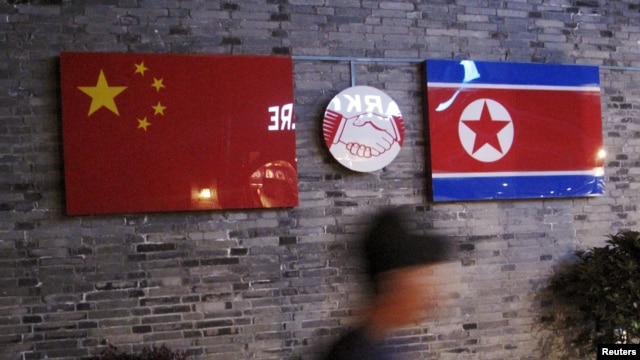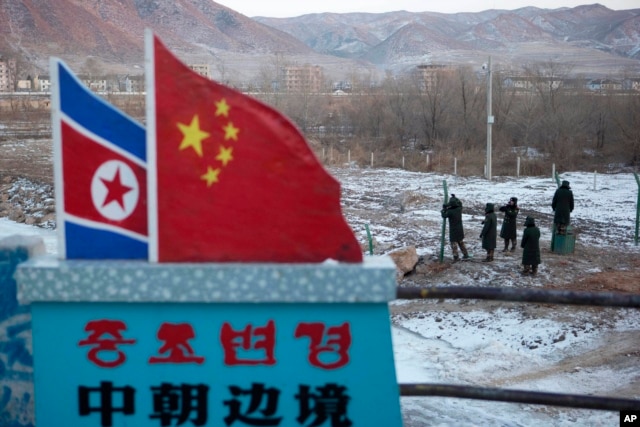Most North Korean Defectors Avoid Seeking Asylum in China
FILE – Flags of China and North Korea hang outside the closed Ryugyong Korean Restaurant in Ningbo, Zhejiang province, China, April 12, 2016.
August 02, 2016 7:06 AM
Hong Kong police have since increased their presence around the Far East Finance Center where the consulate is located.
China’s hard line
South Korea is not expected to make a public plea to China to allow the North Korean student to leave for Seoul or a third country on humanitarian grounds.
“If you pressure Beijing too much they could do it just for the sake of really going the other way, instead of responding to public pressure,” said Arnold Fang, East Asia researcher for the human rights organization Amnesty International in Hong Kong.
Instead, the two sides will likely engage in quiet negotiations.
To discourage asylum seekers, Beijing is known to wait months and even years before expelling defectors to a third county.
“During a period of one to two years, which is not short, [the South Korean government] negotiates with the Chinese government and the defectors are expelled, by about that time people tend to forget,” said Kim Yong-hwa of the North Korean Refugees’ Human Rights Association in Korea.
In the late 1990s and early 2000s, an almost constant influx of North Korean asylum seekers climbed the walls of foreign diplomatic missions in China.
On one day alone in 2004, 44 North Korean men, women and children entered the Canadian Embassy in Beijing seeking asylum.
Forcing asylum seekers to remain basically as captives inside foreign diplomatic missions in China, and increasing security on both sides of the Sino-North Korean border, has greatly reduced the number of North Korean asylum seekers in China in recent years.
Harsh penalties for the families that defectors leave behind has also greatly decreased overall defections from the North, especially among the elites.
Underground railroad
North Koreans still cross into China to escape extremely impoverished conditions at home.
But most organizations that aid North Korean defectors today avoid seeking asylum in China or expecting any assistance from the South Korean government.
“We do not seek governmental help and they have not offered it. And we’re fine with that arrangement,” said Tim Peters, the director of Helping Hands Korea, a Christian aid organization for North Korean defectors in Seoul.
An estimated 100,000 undocumented North Koreans currently live in China, most near the border area.
FILE – A Chinese-built fence near a concrete marker depicting the North Korean and Chinese national flags with the words “China North Korea Border” at a crossing in the Chinese border town of Tumen in eastern China’s Jilin province.
Christian organizations, human rights groups, as well as private guides who charge thousands of dollars, help defectors in China arrange for transportation and documents to secure passage to a bordering country.
Some, like Vietnam and Mongolia, have imposed stricter border security. Many now head to Laos or even try to continue on to Thailand, where the government has allowed North Koreans safe transit to South Korea.
The journey for defectors is fraught with danger and physically demanding, usually requiring several long bus trips.
“The fear of forced repatriation is a nightmare that they face 24 [hours], seven [days a week], 365 days a year,” said Peters.
Beijing considers defectors economic migrants rather than refugees, and will forcefully repatriate undocumented North Koreans, even though the United Nations Committee Against Torture warns that returning defectors face systematic torture and harassment in the North.
Youmi Kim in Seoul contributed to this report.



